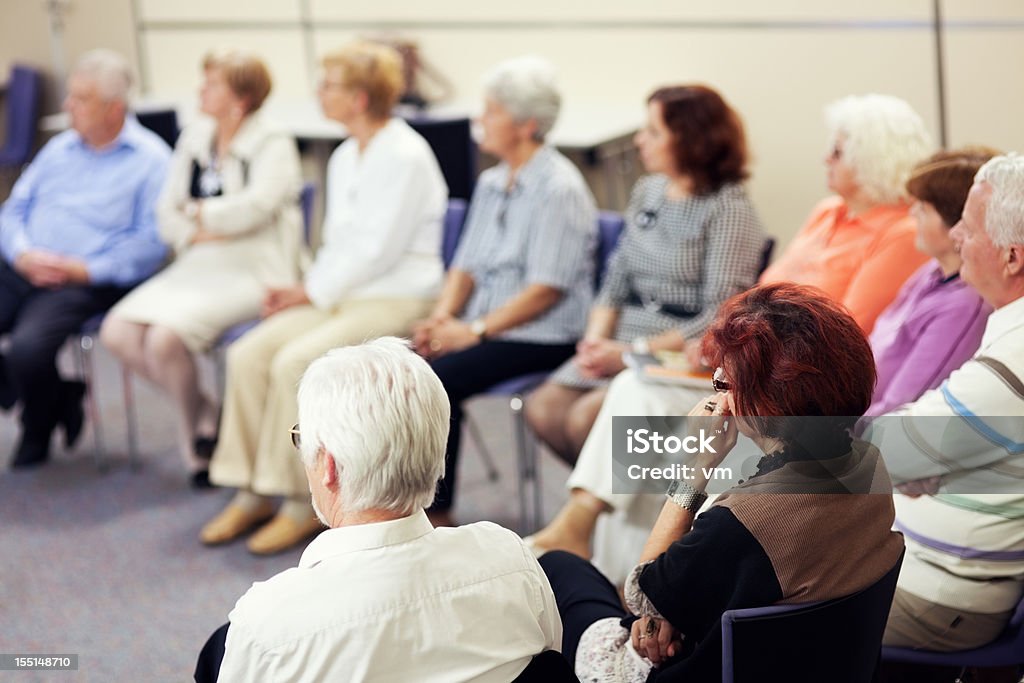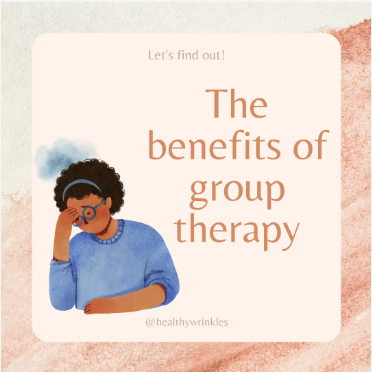
For elderly people, group therapy is a well-researched therapeutic approach that is frequently used in conjunction with medication and individual psychotherapy (1).
Group therapy is a type of psychotherapy that aims to assist people in managing mental health issues or coping with hurtful experiences and behaviours.
When managing older cohorts, group leaders must be aware of age-specific factors such as cognitive decline, physical impairment, and loss of independence. Seniors can benefit from various group therapies, such as less structured reorientation and activity groups, support groups for people with particular conditions, like Parkinson's disease, or more structured groups for remembrance, cognitive-behavioural therapy, or insight-oriented/psychodynamic therapy(1).
Group therapy for seniors can have a variety of beneficial effects:

Nonjudgmental & supportive environment - Group therapy provides a nonjudgmental as well as supportive environment for the elderly, which aids in the development of trust. This makes it simpler for the individual to open up & express their thoughts, feelings, and experiences.
Connect with others - Group therapy allows you to connect with others. Socializing becomes difficult for people suffering from dementia. Being around people who have similar issues makes it simpler for these individuals to connect.
Reduced negative thinking & isolation - Being around people and conversing with them boosts their confidence even when they are not in a group. Support from some of the other group mates is critical in assisting them in overcoming negative thought patterns and isolation.
Boost in self-esteem - Over time, they become more comfortable and begin to understand the other individuals in the group, which helps them deal with their condition and boosts their self-esteem. As members of the group, participants see and recognize their own abilities.
Good learning environment - There is less attention on one person when there are more people around. This helps to reduce stress and creates an ideal learning environment.
Possibility to reach out & help others - Group therapy not only provides you with feedback and advice, but it also allows you to reach out and support those around you. Members learn how much they still have to offer and how beneficial their company can be to others during such discussions. This raises their level of happiness.
Individual therapy is supplemented by group therapy. People in therapy groups can meet others who have had similar experiences. Group therapy sessions are led by one/more certified psychologists or any other mental healthcare practitioners. There are numerous group therapy models to choose from. Most groups, tend to concentrate on introducing members to fresh, more positive behaviours so that they can cope better with major life events as well as mental health symptoms.
1 - Agronin M. Group therapy in older adults. Current Psychiatry Reports. 2009 Feb;11(1):27-32.
Disclaimer: Healthy Wrinkles does not recommend or offer any medical diagnosis, treatment, or advice. The information provided here is only for the awareness of disease or ailment among individuals, caregivers, and the public. The advice of doctors, licensed professionals, or therapists who are knowledgeable about your particular situation should always be sought before using the information provided here. It should also not be used in the event of a medical emergency or for the diagnosis or treatment of any medical condition. If you want urgent assistance, contact a qualified medical professional. Additionally, the information represents the author's views and not those of Healthy Wrinkles.

